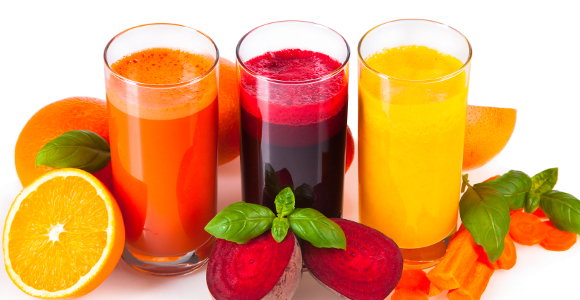Vegetable juice provides your body with the vitamins and minerals that it needs. Concoctions such as V8 Juice, for instance, contain vitamins A, C and E, as well as potassium and magnesium. Eating vegetables and getting these nutrients can help your body fight off diseases like cancer and diabetes. It can also help boost your immune system to fight everything from the common cold to the flu. By getting vitamin A into your system, you can keep your skin looking healthy and also improve your vision over time. Likewise, vitamin C helps build stronger bones and it's also good for your teeth. Finally, vitamin E helps your body create new cells and protects them against damage.
The Convenience of Vegetable Juice
Aside from just being good for you, vegetable juice is also an easy way to make sure you get your nutrients every day. This is important because your body doesn't just need vitamins A, C and E every now and again. It needs these nutrients every single day. Drinking vegetable juices, such as carrot, beet, and celery, is a tastier option than taking vitamin and mineral supplements. These juices may also be more convenient than consuming raw or cooked vegetables.
Vegetable Varieties
Today, there are many vegetable juice options including single flavors and blended varieties that adults can enjoy as well as children. Smaller bottles are available to pack in lunches to ensure that children aren't missing out on much needed vegetables and minerals. Whatever variety or bottle size you choose, there is no doubt that vegetable juice has many nutrients packed into it that your body needs. Make sure you're getting enough of them by drinking it regularly.
Nutritional Value
While vegetable juice contains many vitamins and nutrients that are vital to your body, it does not contain an abundance of calories or things that will hurt your body. In an 8 ounce glass of vegetable juice, you will typically take in somewhere between 50 to 100 calories. This means that by drinking it, you are only getting about five to ten percent of your daily caloric intake. This is okay too because you get plenty of calories that produce energy if you maintain a balanced diet elsewhere and eat foods that give you the calories you need. Vegetable juice is also relatively low in carbohydrates, sugars, and protein. The only thing you do need to keep in mind is that it is relatively high in sodium. So outside of drinking vegetable juice, you need to make sure you drink plenty of water everyday to prevent your sodium levels from rising too high.
These are just a few of the reasons that you should drink more vegetable juice. You can start the day off with a glass to make sure that you're getting a serving of vegetables early on in the day. There are plenty of flavors of vegetable juice that make it easy to incorporate into your breakfast, too.



